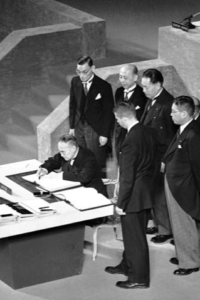
In Okinawa, there have been a number of crimes committed by US military service members, and there are even cases where crime information is not provided or shared with the Okinawa Prefectural Government. All local governments with US military bases in Japan have called for the Japan-US Status of Forces Agreement to be revised. Considering the real strengthening of the alliance, we cannot turn a blind eye to the asymmetry of privilege between the United States and Japan. Policy on which all the Tokyo gubernatorial candidates’ answers agreed In a survey conducted by the Tokyo shimbun newspaper of the six main candidates for the Tokyo gubernatorial election on July 7, 2024, there was one issue on which all the candidates agreed. It was the revision of the Japan-US Status of Forces Agreement (SOFA). “There are US military facilities in Tokyo, including the US Yokota ... ... [Read more]

